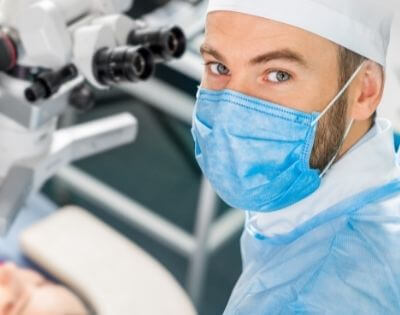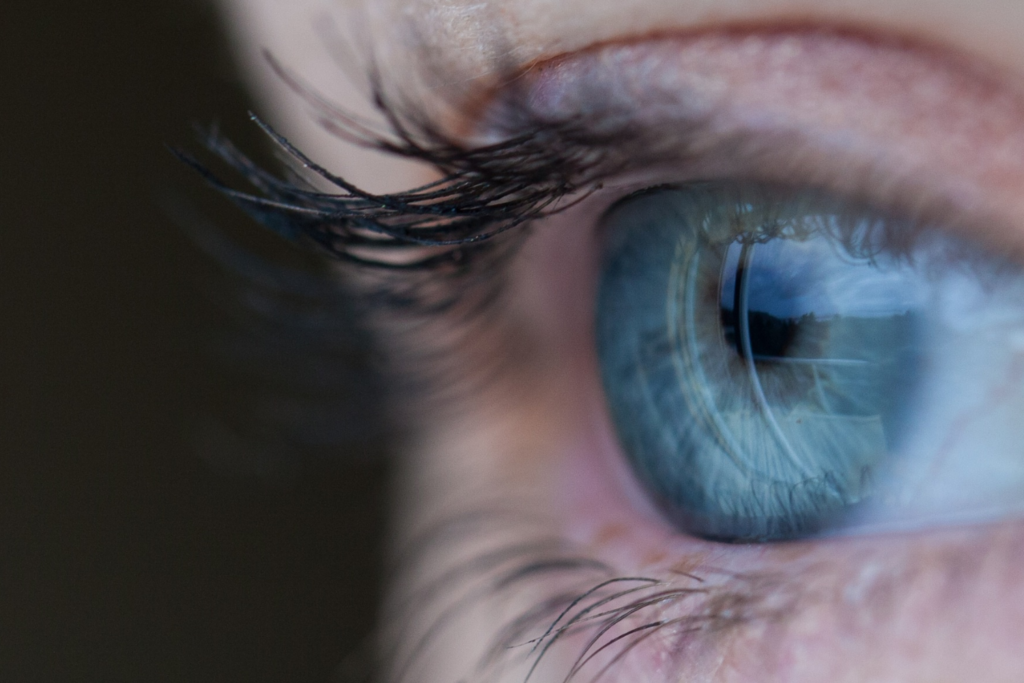*This blog was originally published on 05/11/2017 and has been updated
It’s always a good idea to ask your doctor questions during your appointment when scheduling eye surgery. Surgery is always a nerve-wracking experience, so anything to help reduce your fears and worries is a great idea. To help you get a handle on what’s to come, pose these questions to your ophthalmologist when scheduling eye surgery.
- How many surgeries like this have you performed?
- How do I prepare for surgery?
- What’s the success rate of the procedure?
- Are there any risks associated with my eye surgery?
- Where can I learn more about this procedure?
Important Questions to Ask When Scheduling Eye Surgery
While not specifically about eye surgery, the experts at the Mayo Clinic have provided this useful video of general questions to ask before surgery. Check it out to collect any questions to ask that can help deepen your knowledge and provide you peace of mind leading up to, during, and recovering from your procedure.
1. How many surgeries like this one have you performed?
At Baptist Eye Surgeons, you can rest easy knowing that all of our surgeons are experts and well-experienced in their chosen field. However, it can help to have a concrete number in your mind. Talk to your eye surgeon about their experience with your procedure. Once you understand their expertise, you can go into surgery with a lot more confidence.
2. How do I prepare for surgery?
They say knowledge is power, and knowledge can definitely give you power over your fear of eye surgery. Knowing what will happen during your procedure and why gives you a leg-up by letting you know what to expect and how to prepare.
Let’s use cataract surgery as an example. When preparing for this procedure, you want to make sure that you’ve been using your prescribed eye drops as directed. You’ll also want to pick up your post-surgical eye drops before your actual procedure to help make the recovery period go by more smoothly.
On the other hand, you’ll want to avoid using tobacco of any kind. Talk to your doctor about eating and drinking beforehand since this can depend on when your surgery is scheduled for.
Are you interested in a more detailed look at what preparing for surgery can look like? Read What Should I Expect During My Cataract Surgery? to learn more!
3. What’s the success rate of the procedure?

Around 129 million surgeries were performed in the United States in 2018 and that number is expected to grow to around 144 million by 2023. While those numbers wouldn’t be possible if success rates were low, it can still leave you wondering about the success rate of your particular procedure.
There are more types of eye surgeries than we can cover in one blog post. With that said, some of the most common and popular procedures we perform include:
- Cataract surgery
- LASIK surgery
- Glaucoma surgery
Cataract surgery has around a 99% success rate according to the University of California, Irvine. Similarly, LASIK surgery results in 90% of patients having 20/20 vision or better, and a little over 99% of patients achieving at least 20/40 vision.
You have more options for glaucoma surgery, which results in different success rates. Laser surgery is usually the first recommendation with a success rate of 80%. Unfortunately, this tends to drop to around 60 – 66% after two years. However, incisional surgery has a 70 – 90% success rate with the chance of the drainage hole needing to be reopened later on.
Want to learn more about our eye procedures? Read our Eye Surgery page to find out more!
4. Are there any risks associated with my eye surgery?
There are risks of complications during any surgical procedure. Take cataract surgery, for instance. We just mentioned that cataract surgery has a success rate of around 99%. While this is great news, the procedure can still result in complications.
These complications can include:
- Infection
- Bleeding
- Inflammation
- Drooping eyelid
- Retinal detachment
Fortunately, many of these complications can be avoided by following your surgeon’s recovery instructions. While the surgery itself only takes around 15 minutes, it takes around 4 weeks to recover. It’s essential during this time to avoid strenuous physical activities and use your medicated eye drops as instructed to aid in the healing process.
Make sure to follow your doctor’s orders after any type of eye surgery. They will help protect your vision, keep your eyes comfortable, and help ensure as fast a recovery process as possible.
Would you like to learn more about recovering from cataract surgery? Read Cataract Surgery Recovery: What Should I Expect? to know what to find out!
5. Where can I learn more about this procedure?
The American Academy of Ophthalmology’s Eyesmart site is a great place to get started. There, you can learn about common eye topics ranging from age-related macular degeneration (AMD) to styes. Whether you’re needing to schedule surgery or have just been diagnosed with an eye disease, it always helps to get more information from one of our favorite sources.
It’s important to ask questions when scheduling surgery to help give yourself peace of mind. These can include questions about your surgeon’s experience, preparation, success rate, risks, and learning more about your condition and the procedure. Watch the video at the beginning for other questions, as well as download our list of questions to ask during your appointment.
Click here to download and print our handy list of questions to bring to your appointment!
Baptist Eye Surgeons is an ophthalmological practice in Knoxville, TN, and Morristown, TN. Give us a call at 865-579-3920 for more information or to schedule an appointment.






